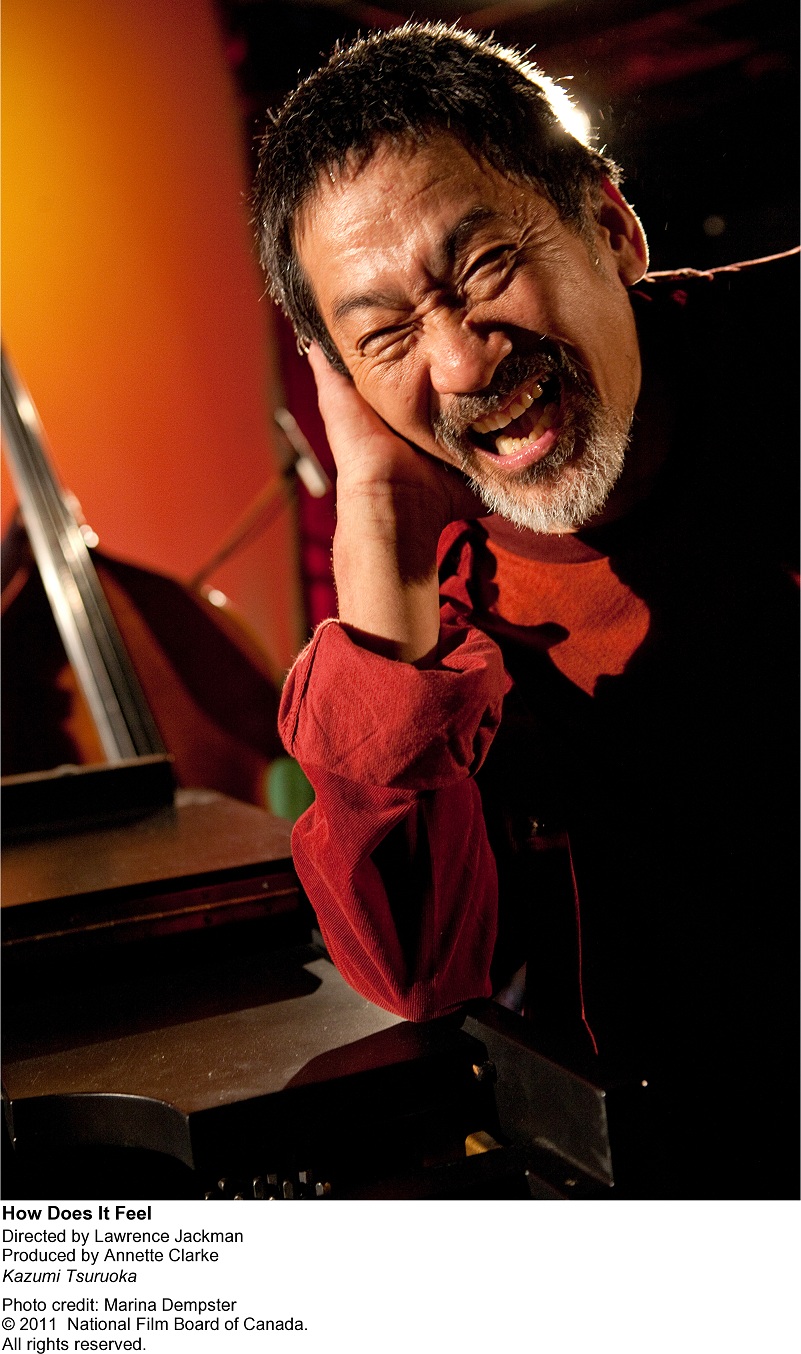Documentaries are generally about reducing distances between the viewer and subject(s).
A well-made doc will be able to place a complete neophyte in the world of the film, and make them understand it.
Biographical documentaries—whether they be about one or many—operate in a similar way, but differ in that they don’t require an explanation of setting; the world is understood, but the subject is not. These films are inherently mirror-like: the narrowed distance between the viewer and subject motivates reflection in the viewer. The tricky part, however, is to make the subject easy to relate to without simplifying or objectifying them. This is doubly difficult when dealing with more marginal groups.
How Does It Feel, a National Film Board-backed documentary written and directed by Lawrence Jackman, opens bluntly. Kazumi Tsuruoka, who suffers from cerebral palsy, explains his feelings to the camera. The opening is the sole scene without subtitles, and CP makes his words all but indecipherable. With subtitles—or, I suspect, with listening practice—Tsuruoka is pointed and eloquent, something the film makes clear in its second scene.
This opening is an excellent bit of instructive contrast: any assumptions an audience may have about the lucidity of this man are teased out by the opening, before the film makes it clear that Tsuruoka’s limitations are purely physical. Tsuruoka isn’t well-spoken despite his condition; his physicality has little bearing on the quality of his thought.
Tsuruoka isn’t a documentary subject simply because of his condition. It’s his one-man show that makes him particularly noteworthy. In it, he sings a variety of jazz and blues standards, as well as some ballads, many of which are elevated to an entirely different level of meaningfulness by the realities of his life. Thus, “outside, I’m masquerading / Inside, my hope is fading / Just a clown / Oh yeah since you put me down / My smile is my make-up I wear,” is no longer just a breakup song, it’s a way to exercise a much deeper pain.
This type of art therapy is quickly gaining a strong reputation for the results it can yield, not just as an emotional output but as a confidence-building and prejudice-breaking experience.
It’s the kind of thing Concordia’s Centre for the Arts in Human Development offers, as documented in Ryan Mullins’ and Omar Majeed’s The Frog Princes.
In this self-narrated piece, we’re introduced to a production of The Frog and the Princess: A Musical Ecodrama acted out by adults with developmental delays, some physical, some mental. The play becomes an incredibly stressful experience for some of the players. While others find it easier, all seem to get a serious boost in confidence from the intimidating task of memorizing lines and being on stage.
At the same time, some of the actors have to face their pains and fears head-on. Rayman, who plays the Frog Prince, must endure a scene where the entire court of humans laughs mercilessly at him for being a frog. In the first run-through, what starts as fiction quickly begins to invoke a deeper, more visceral emotion in Rayman. His exit from stage seems too abrupt to be simply acting, but the emotion nevertheless stays largely on stage; it takes almost no time before Rayman’s posture returns to its nonchalant norm.
Both of these documentaries avoid any pitfalls with depiction of their subjects, and as a result, the characters we meet are neither over-sympathized nor over-simplified. There’s eloquence and limitation, poignancy and simplicity. In other words, there’s not much difference in these characters than in the ones that populate any other documentary; distance, here, is not a factor.
Catch a viewing of How Does It Feel and The Frog Princes on March 26 at 7 p.m. in H-110. For more information, visit www.cinemapolitica.org.




